The competitive situation of China and the United States in this region has risen, which has made Yajia'an's concerns that his member states may be reduced to the agent of a large country significantly exacerbated, and his confidence in leading China and the United States has also declined.Interviewees in Southeast Asian countries believe that China's influence in Southeast Asia has declined significantly, but the United States is no longer the most trusted global free trade advocate.In the minds of Southeast Asia, the United States, as the primary advocate of free trade, was replaced by Asianiman in the 2023 survey.
This large -scale survey report also found that the people of Southeast Asian countries have begun to get out of the haze of the crown disease.Also more concerned.Among them, Southeast Asian countries are highly concerned about the situation in the Taiwan Strait. More than 40 % of the respondents believe that the conflict of the Taiwan Strait's outbreak will undermine the stability of Southeast Asia, and nearly 30 % of the respondents believe that the Asian country will be forced to choose.
A total of 1308 people participated in the Southeast Asian situation: The STAT of Southeast Asia 2023.They come from the academic and think tanks, business circles, civil organizations, NGOs and media, government departments, and regional and international institutions in the ten nations of Asia.The survey began from November 14 last year to January 6 this year. Most respondents answered questionnaires online.
The research team calculates the results of the survey of 10%opinion of each country, so that the weight of the survey results of the 10th countries of the 10 countries of the Asianianan country is equal.
Part 1: Internal and external challenges in Southeast Asia
Crown disease epidemic has been raging for nearly three years, and Southeast Asian countries have gradually stepped out of the shadow of the epidemic, and people's concerns about the epidemic have significantly faded.However, during the post -epidemic period of Southeast Asia, there were still many challenges, including economic recession and climate change, and more than 40 % of the respondents were worried about the military tensions of the Taiwan Strait, the South China Sea and the Korean Peninsula.
Facing the intensified geopolitical competition, the interviewees' concerns about Asia in the field of Asia's Domains have increased significantly, and they are disappointed with Asia's performance.The bottom has become insignificant.
The biggest challenge in Southeast Asia is the economy
The inflation problem caused by the Russia and Ukraine War caused unemployment and economic recession, which is the biggest challenge for Southeast Asia this year.
In recent months, Southeast Asia has continuously continued abnormal climate, typhoon and heavy rain, which has also significantly increased people's attention to climate change issues.List climate change as the most important respondents in Southeast Asia, as many as 57.1 %, an increase of 20.1 percentage points from last year, becoming the second largest challenge facing Southeast Asia.
The challenge of the "third" is the expansion of the gap between socio -economic and income, and the military tension of potential fire points such as the South China Sea, Taiwan Strait and the Korean Peninsula.Analysis believes that this reflects the pressure of rapid changes in geopolitics and economic environment in Southeast Asian countries.
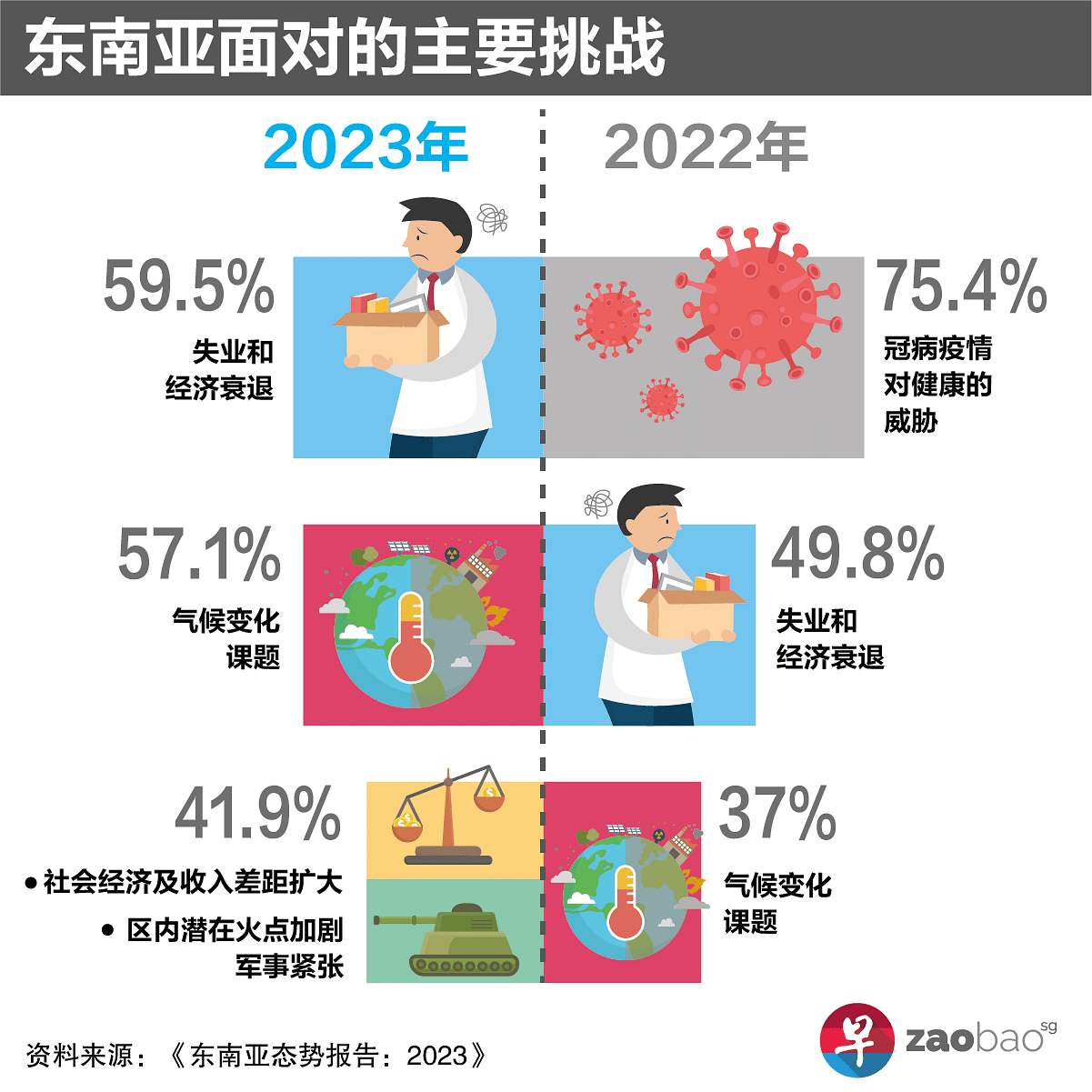 The interviewee's interviewee has become the field of major powers in Asians.Worrying significantly improves
The interviewee's interviewee has become the field of major powers in Asians.Worrying significantly improves  Taiwan StraitSoutheast Asia with negative impact
Taiwan StraitSoutheast Asia with negative impact More than 80 % (87.5 %) respondents believe that the Taiwan Strait conflict will have a negative impact on Southeast Asia, including destroying regional stability and economic cooperation.Stand.Only a few people believe that Southeast Asia will benefit or be unsatisfactory from it.
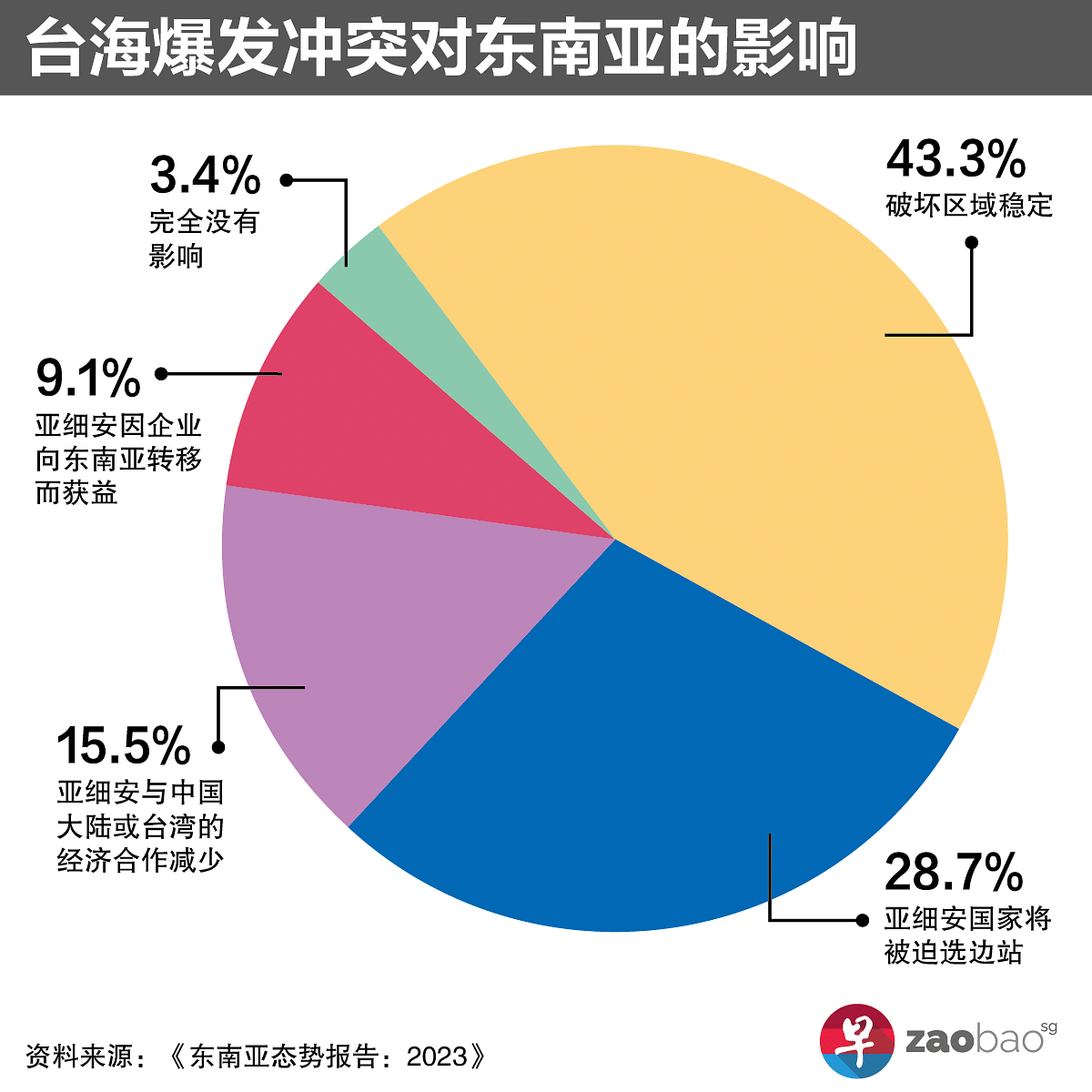
45.6 % respondents should respondIt is believed that your government should oppose the use of force through diplomatic channels, and 33.5 % believe that it should be neutral.Only 11.9%of the respondents supported sanctions on the provocative party; 6.3%supported Taiwan to provide military assistance to Taiwan; 2.7%believed that China should support China.
Part 2: The influence of the great country in Southeast Asia
The gap between the political and strategic influence of China and the United States in Southeast Asia has shrunk compared with 2022.China is still the most economic, political, and strategic country in Southeast Asia, but after nearly three years of strict epidemic prevention and entry and exit control, China's economic influence has been considered significantly declined.In contrast, with the increase in the United States 'attention to the Asia -Pacific region, the interviewees' evaluation of US economic influence continued to rise slightly this year.
In terms of politics and strategy, China has also continued to be considered by most interviewees to be the most influential country in Asia.Economic influence.
However, although China and the United States continue to be the two countries with the largest regional influence, the bilateral relations of Sino -US continued deterioration have cracked down on Southeast Asia's confidence in the leadership of the two countries and began to turn their attention to Yajia.The confidence of the leadership of Asian security has improved.
The influence gap between China and the United States in Southeast Asia is narrowed
Since the release of the Southeast Asian situation in 2019, China has been regarded as the regional economy for five consecutive years.The country with the greatest influence of politics and strategic.However, it is believed that China with the greatest economic influence in Southeast Asia, from 76.7%of last year's sharp decrease of 16.8 percentage points to 59.9%of this year; political and strategic influence fell 12.9 percentage points to 41.5%.More than 60 % of interviewees expressed concern about China's economic, political and strategic influence.
The US's economy in Southeast Asia, as well as political and strategic influence, slightly increased by 0.7 percentage points and 2.2 percentage points, reaching 10.5%and 31.9%.There are 34.3%of the respondents who expressed concerns about the increase in US economic influence, and 44.2%are worried that US politics and strategic influence will increase.
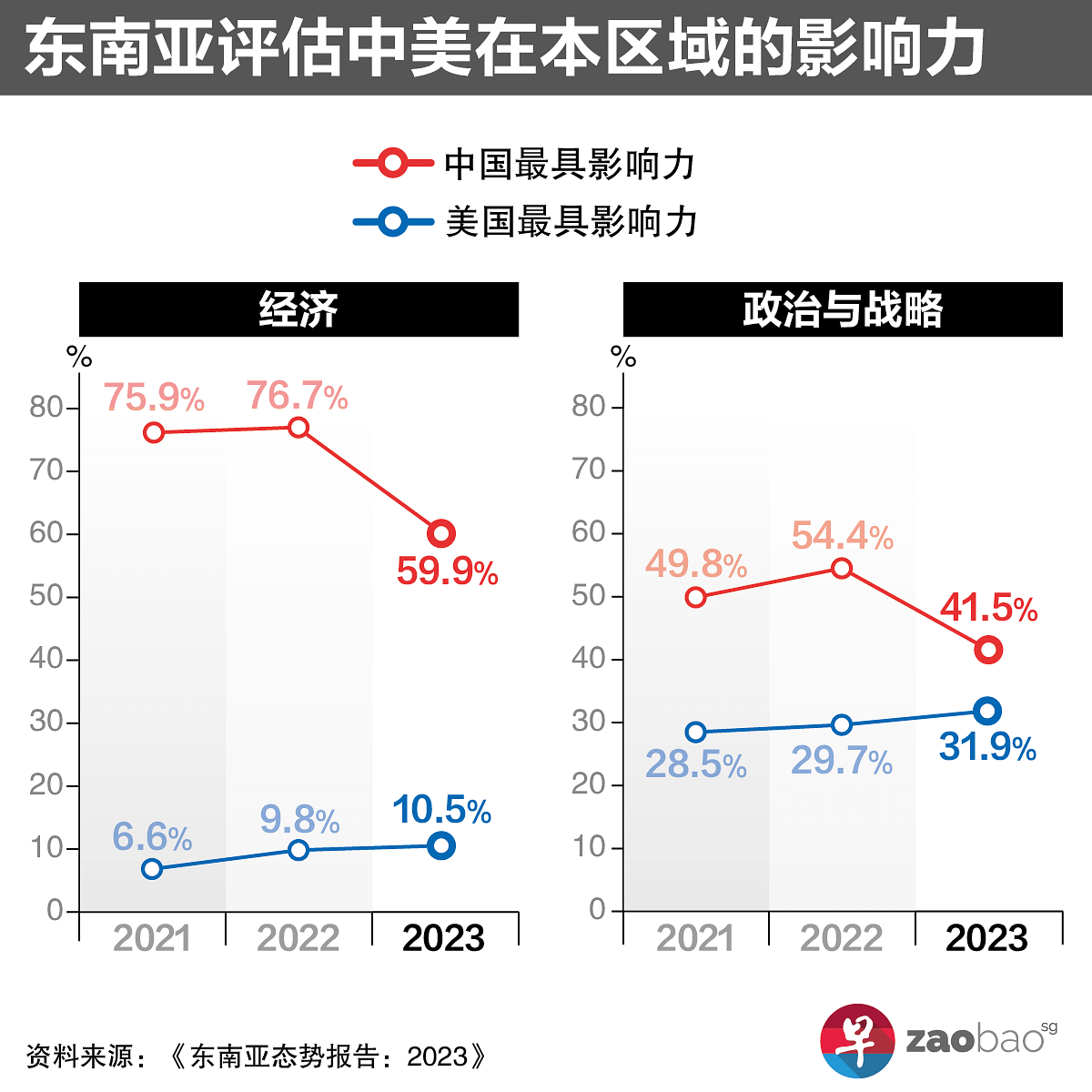
US President Biden launched in May last year that seven Southeast Asian countries were in May last year.The Indo -Pacific Economic Framework (IPEF) is considered to check the economic influence of China in the region.Although the relative majority of the respondents positively evaluated the IPEF and believed that it showed the determination to maintain economic and trade exchanges between the United States and the region, 41.8%also believed that the results of IPEF were not yet judged, and the specific negotiation results must be released.11.7%of the negative people are worried that IPEF will exacerbate Chinese and American competition.
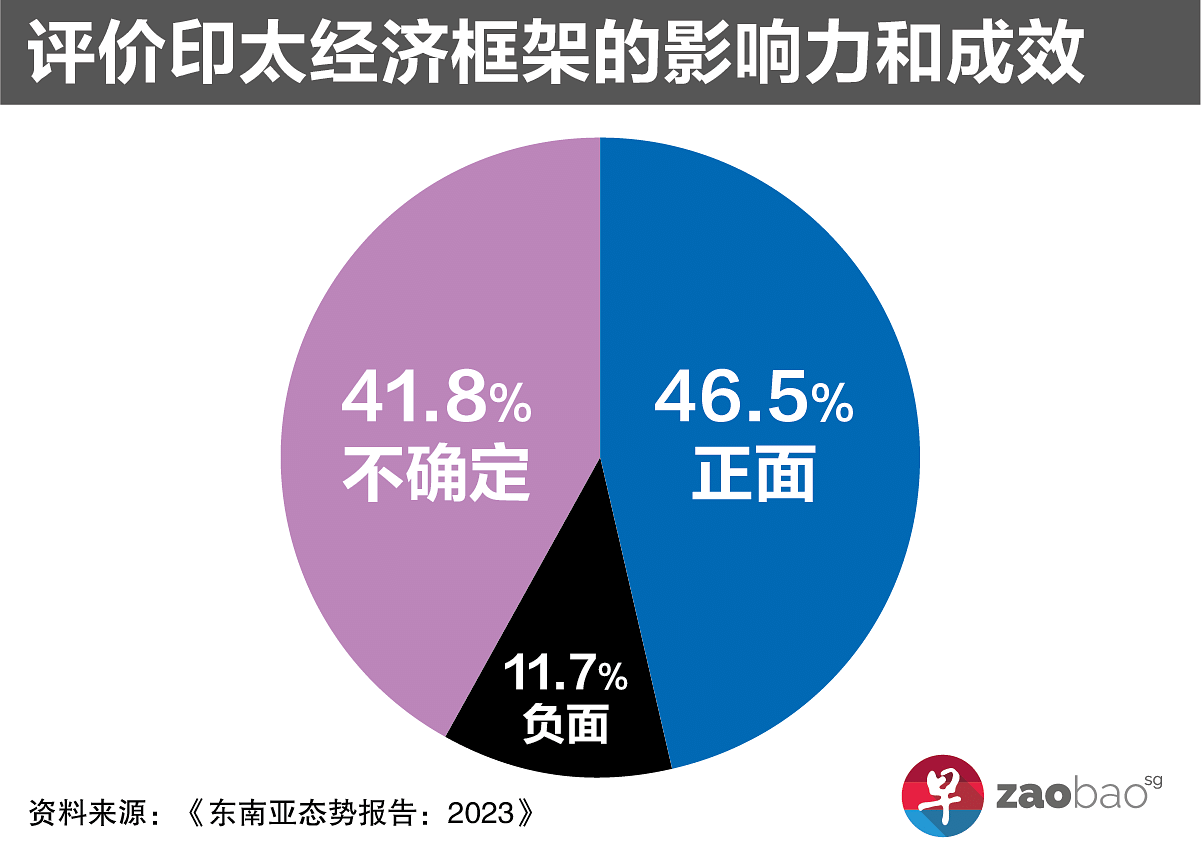
Southeast Asia's leadership confidence in China and the United States has declined
The respondents are the most confidentIt was the first time that Ya'an reached the top of this survey project. The United States and China ranked first and second last year, and the United States fell to the second place this year, and China fell to the fourth place.
The rules -based order and maintenance of international law, the United States continues to rank first. HoweverIncrease 6.4 percentage points and 4.2 percentage points; these two regional organizations ranked second and third respectively. China's ranking from fourth last year to sixth.


Southeast Asia is not very positive for the security framework led by China and the United States
Actively promote cooperation in the region. This mechanism is considered to compete in China to continue to obtain positive evaluation of more than half of the interviewees this year, but the proportion decreases slightly by 8.1 percentage points.
37.8%of the respondents believe thatQUAD and Asianan can complement each other, and 31%believe that cooperation with QUAD can benefit the region. In addition, 13.9%believe that QUAD will threaten the central position of Yajia'an in the region and compete with the regional mechanism leader of Ya'an. 10.4%believe that QUAD will force regional countries to choose edgesStanding, 6.8%are worried that Quad will stimulate China.
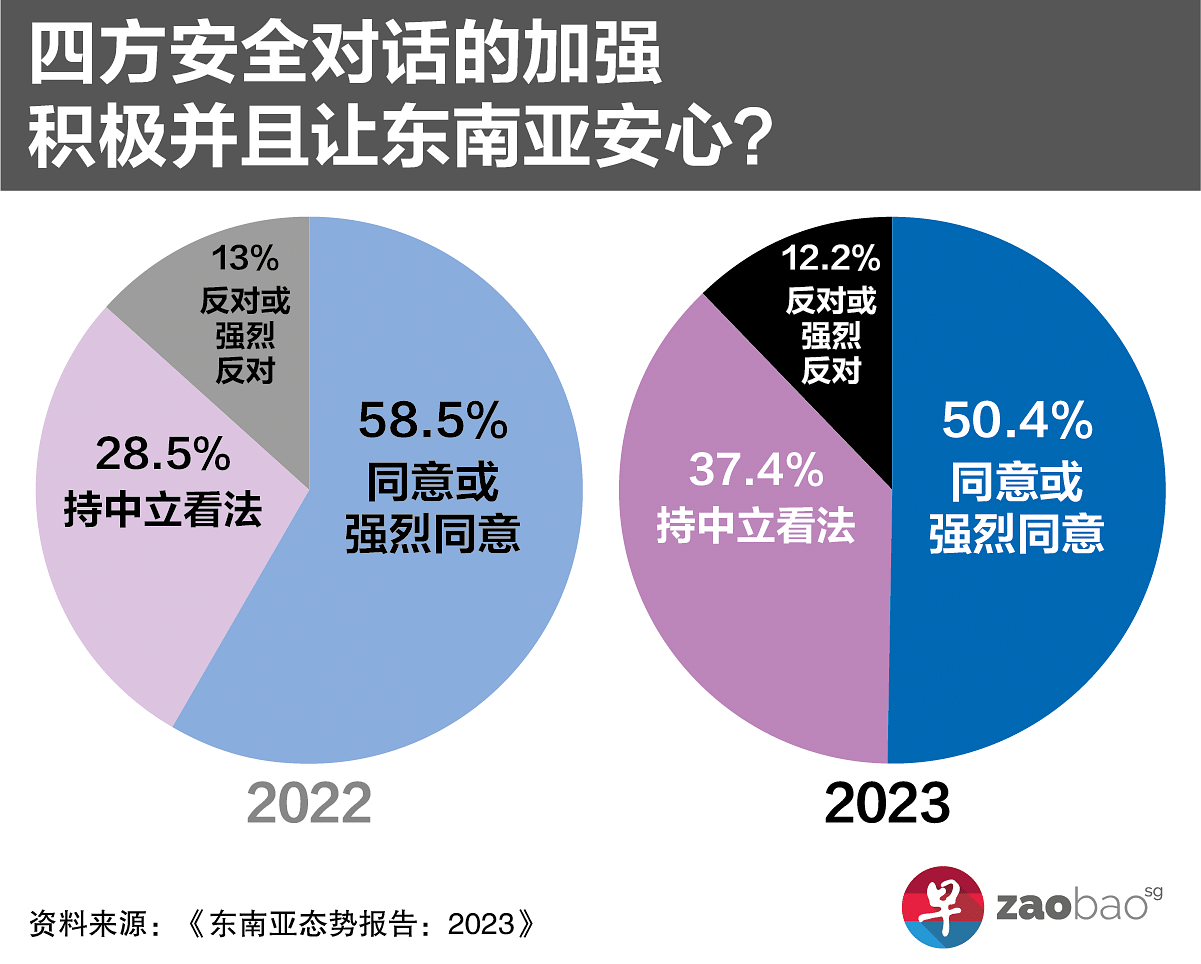 Only 27.4%of the global security initiative proposed in China last April was confident or very confident to bring benefits to the region. They believe that this initiative can complement other regional security mechanisms and strengthen the power balance of the region in the region..
Only 27.4%of the global security initiative proposed in China last April was confident or very confident to bring benefits to the region. They believe that this initiative can complement other regional security mechanisms and strengthen the power balance of the region in the region.. A respondent who had no confidence or low confidence in global security initiative accounted for 44.5%. They mainly worry that the initiative will lead to the heating up in the tension between China and the United States in the region, forcing Yajian to choose from.
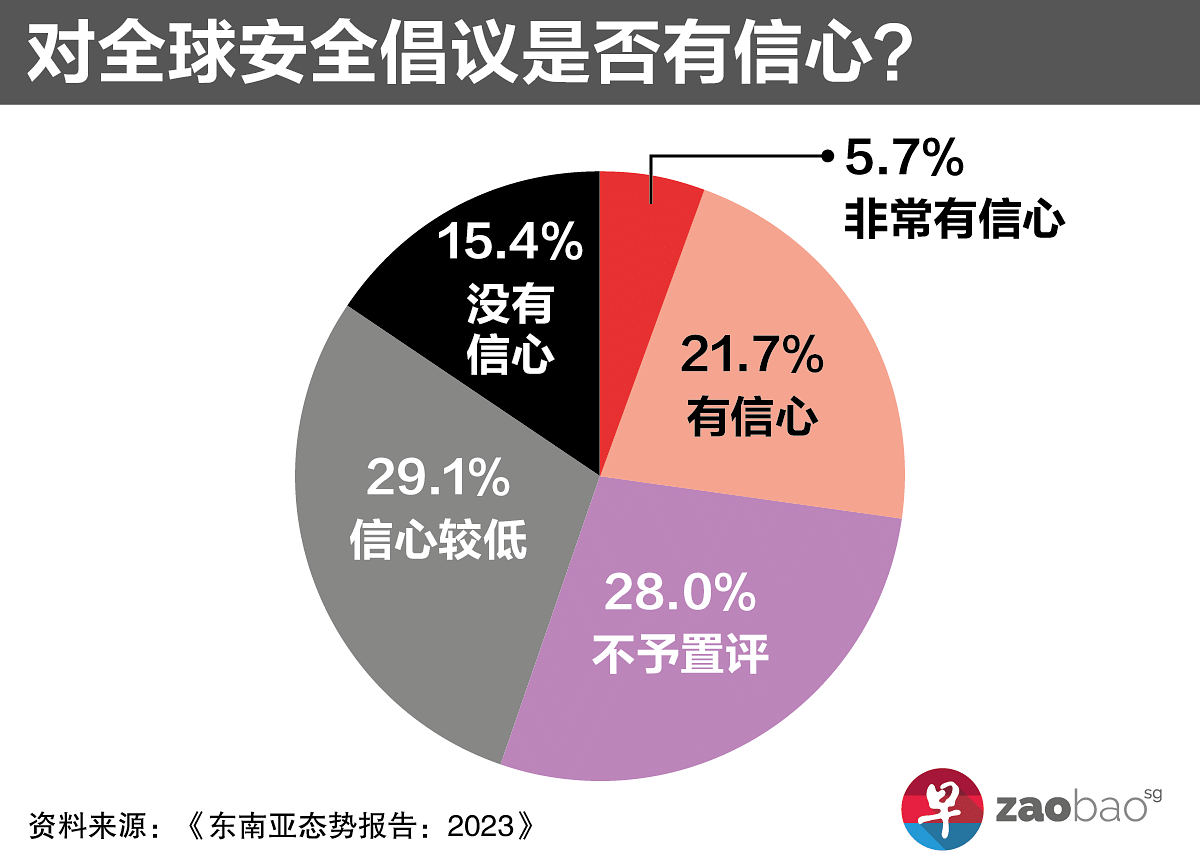 Part 3: Southeast Asia and China and the United States
Part 3: Southeast Asia and China and the United States With the intensification of the Sino -US game, Asians may be paid attention to the issues of forced to choose the border stations between the two major powers.As in the past two years, most interviewees believe that Yaxian should strengthen toughness and cohesion to resist the pressure (45.5 %) of the two major powers, or hold the position (30.5 %) that adheres to the unwilling team.It is believed that the ratio of the respondents who are difficult to maintain neutrality and the must be selected from the border stations will be reduced from 11.1%last year to 6%.%.
If Southeast Asian countries are forced to choose the border station, 61.1%of the respondents tend to choose the United States, an increase of 4.1 percentage points from 57%last year;% Decreased to 38.9 %, which further expanded the percentage gap between the two countries.
In Southeast Asian countries, Brunei, Malaysia, and Indonesian interviewees are more inclined to choose China.
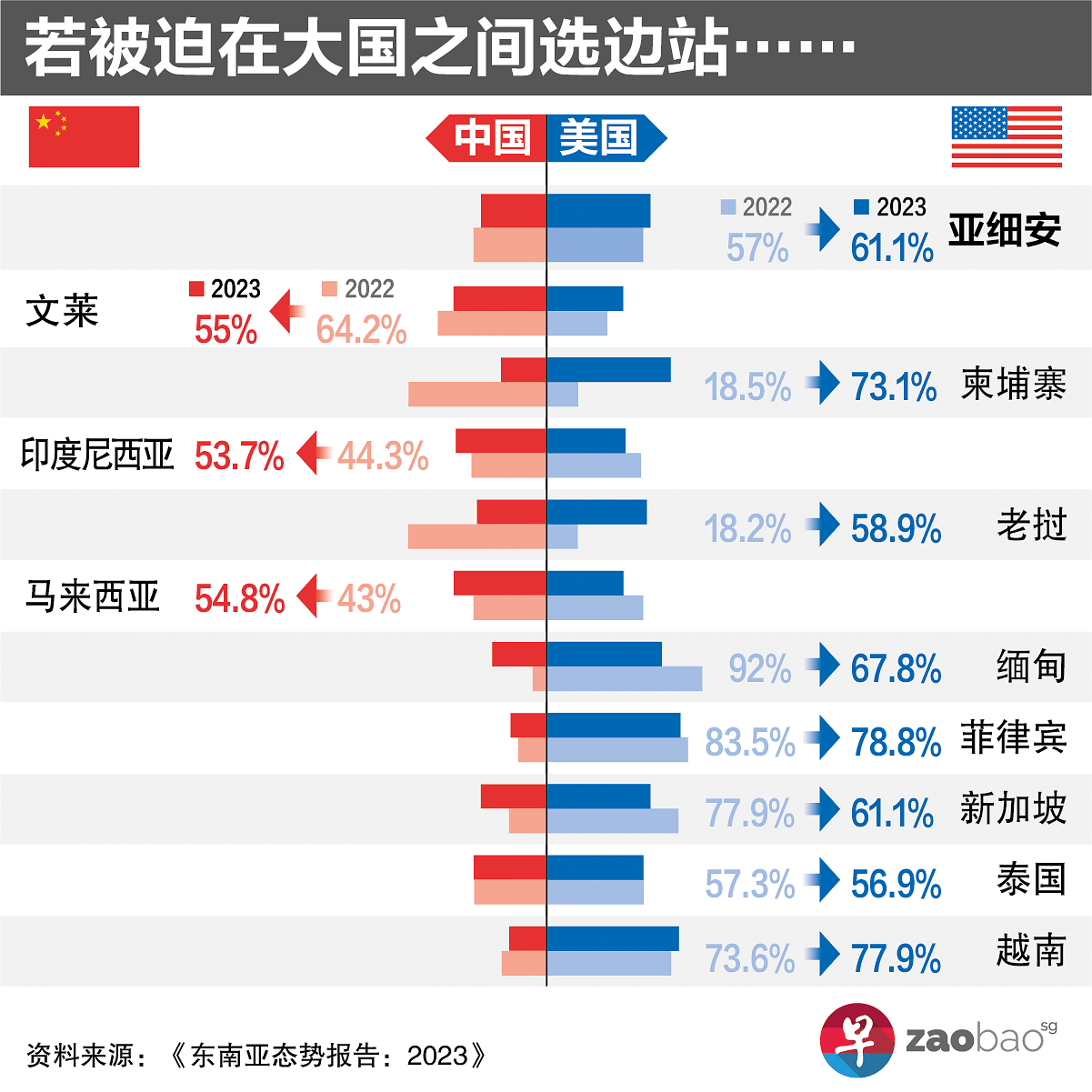
Southega's trust in China and the United States "doing right" trust in China and the United StatesIncrease
I believe that the United States can do "correct things" to maintain world peace, security, prosperity, and global governance.As for interviewees who do not trust the United States, 30.7% believe that the United States cannot focus on global issues due to domestic affairs.
People who have confidence in China have also increased this year.But overall, there are still many respondents who do not believe in China.Except for Brunei, Cambodia, and Laos, other Southeast Asian countries do not trust China.Among them, 40 % of the interviewees of China believe that China's economic and military forces can be used to threaten interests and sovereignty in Southeast Asian countries.
In addition to China and the United States, the investigation also asked the interviewees' trust in Japan, the European Union and India.Among them, Japan continues to become the most trusted regional country in the interviewees.
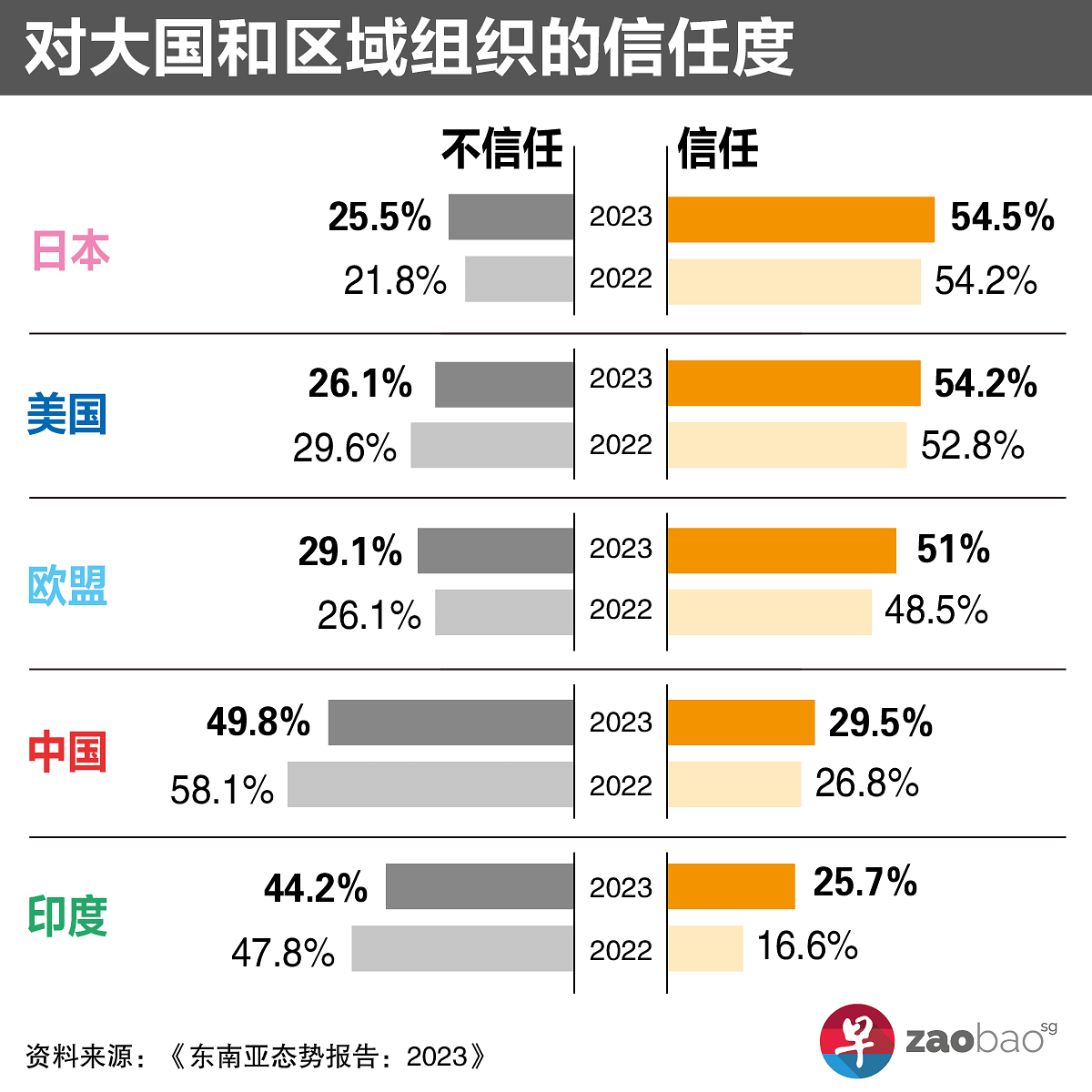 The development of the relationship between China and the United States and Southeast Asian countries
The development of the relationship between China and the United States and Southeast Asian countries Looking forward to the next three years, most interviewees believe that the relationship between China and their countries will remain unchanged.It is believed that the proportion of national relations between China and their affiliated will advance only 38.7 %, which is 7.9 percentage points from 46.6 % last year.The ratio of respondents who believe that the relationship will deteriorate has also decreased, which may be because China has been in contact with the Asian country in the past year.
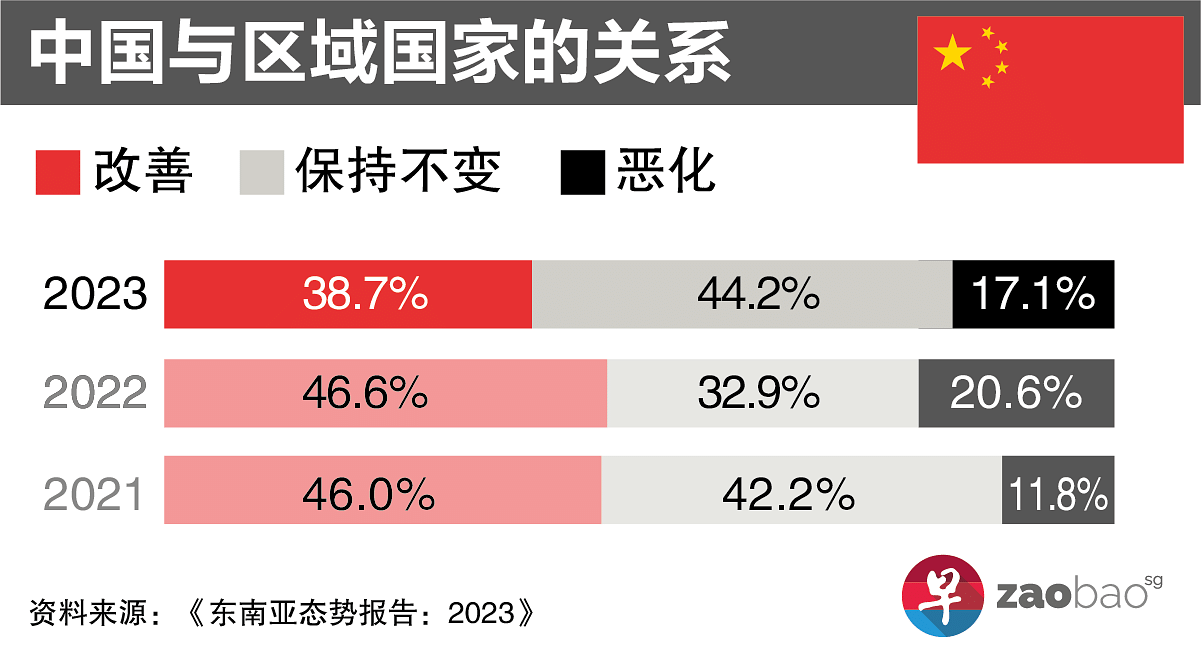 Compared with the past two years, it believesThe increased respondents continued to decrease.However, interviewees who are in the United States as a strategic partner in the region and the security and confidence of regional security have increased, from 42.6 % in 2022 to 47.2 %.This shows that several high -level summits held in the United States in the past year and Southeast Asian countries have achieved certain results.
Compared with the past two years, it believesThe increased respondents continued to decrease.However, interviewees who are in the United States as a strategic partner in the region and the security and confidence of regional security have increased, from 42.6 % in 2022 to 47.2 %.This shows that several high -level summits held in the United States in the past year and Southeast Asian countries have achieved certain results.  Part 4: How do Southeast Asia view the Russian and Ukurito War and Myanmar turmoil
Part 4: How do Southeast Asia view the Russian and Ukurito War and Myanmar turmoil Southeast Asia's influence on the price of the Russian -Ukraine War on prices
Although most of the Asian metropolis countries have not adopted a strong position on Russia's invasion of Ukraine, most interviewees are all interviewees.Realize the serious impact of this war and pay attention to the development of the war.
Nearly 60 % of the respondents believed that the most serious impact of the Russian and Ukraine War was to lead to rising energy and food prices.Indonesia, which relies on Russia and Ukraine and fertilizers, has a deep understanding of this. 73.6 % of Indonesian respondents agree with this view.In addition, 25.9 % of the respondents believed that the Russian and Ukraine War weakened people's trust in rules -based order.
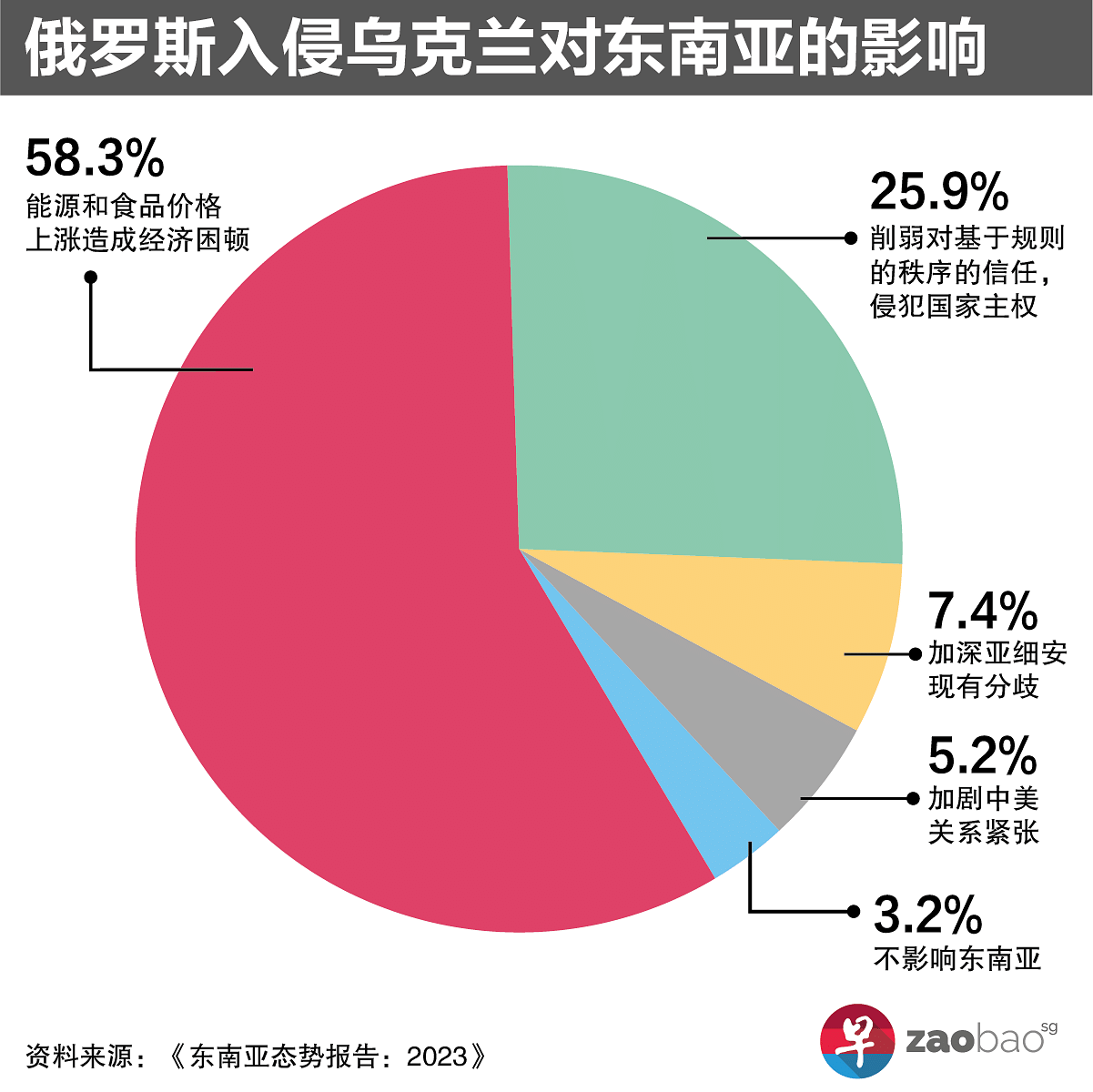
It can solve the Myanmar problem if not optimistic about five o'clock consensus.
Since the military launching a coup in 2021, Myanmar has been in placeDuring the turbulent.More than 40 % of the respondents were not optimistic about the five -point consensus reached by Asians and Myanmar. They believed that the Myanmar military government did not compromise means that the five -point consensus could not work (21.7 %).Solve the complex Myanmar issue (19.6 %).
Only 13.5 % of the respondents believe that five -point consensus is the most suitable solution at present.The remaining 31.4 % of the respondents held a neutral position.
For the next how to deal with Myanmar, nearly 40 % of the interviewees believe that Asians should talk to all parties, including dialogue with the Shadow Government of Myanmar.However, the respondents who believed that Ya'an should not interfere with Myanmar issues also increased from 8.4 % last year to 15.2 % this year.
If you are interested, you can enter the website of the Easov Isaev Isa East South Asian Research website of Singapore to read a complete English report:
https://www.iseas.edu.sg/category/articles-Commentaries/State-OF-SOUTHEAST-Asia-Survey/


